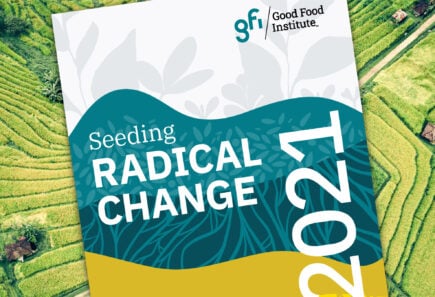
Expo West
GFI Corporate Engagement staff will be attending Expo West and we’d love to meet you there.

GFI Corporate Engagement staff will be attending Expo West and we’d love to meet you there.

GFI Corporate Engagement staff will be attending Expo West and we’d love to meet you there.

Join The Economist to focus on the social and governance aspects of ESG to build much-needed momentum around gender equality, economic inclusivity, connectivity gaps, and access to food, education and digital technology. Acting Managing Director of GFI Asia Pacific Mirte Gosker will participate in a panel to discuss how alternative proteins fit into the future of food tech.

Join GFI CEO Bruce Friedrich and VP of corporate engagement Caroline Bushnell at the SXSW conference and festival!
Join us at the GFIdeas March mixer to meet and mingle with alternative protein professionals. During the networking session, you will be matched with other members of the GFIdeas community to exchange ideas.

Join GFI and Moonshot Collaborative co-founders Che Green and David Benzaquen, to learn about the latest findings from a series of consumer research projects. In this seminar you’ll hear about consumer perceptions of the healthfulness of common alternative protein ingredients and various production processes. You’ll walk away from this webinar with new insights and ideas about how to message your existing products and how to innovate with new ones.

2021 was a record period for alternative protein investments globally, with $5 billion raised by companies creating sustainable alternatives to conventional animal-based foods.

This explainer dives into the composition and properties of plant proteins, desirable ingredients for plant-based meat, and crop sources for these ingredients. Learn how advances in crop genetics benefit plant-based products in scale, cost, and organoleptic properties.

In 2021, GFI released life cycle and techno-economic assessments for cultivated meat and elevated alternative proteins as a global climate solution at the UN Food Systems Summit and COP26.

This explainer focuses on crop-derived macromolecular ingredients, their applications in plant-based formulations, and protein texturization techniques.